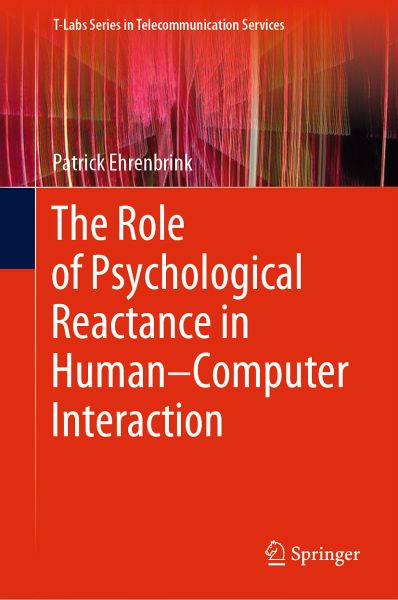
The Role of Psychological Reactance in Human-Computer Interaction (eBook, PDF)
Versandkostenfrei!
Sofort per Download lieferbar
40,95 €
inkl. MwSt.
Weitere Ausgaben:

PAYBACK Punkte
20 °P sammeln!
This book provides an in-depth investigation on the psychological phenomenon "reactance" in the context of Human-Computer Interaction (HCI). The author argues that the complexity and autonomy of modern technology can sometimes be overwhelming and can then be perceived as a threat to freedom by its users, thereby diminishing acceptance. The book investigates if and how this is the case and provides strategies to regain the lost acceptance. Topics include relevance of reactance on HCI, triggers for reactance, consequences of reactance, measurement of reactance, and countermeasures to reactance.
This book provides an in-depth investigation on the psychological phenomenon "reactance" in the context of Human-Computer Interaction (HCI). The author argues that the complexity and autonomy of modern technology can sometimes be overwhelming and can then be perceived as a threat to freedom by its users, thereby diminishing acceptance. The book investigates if and how this is the case and provides strategies to regain the lost acceptance. Topics include relevance of reactance on HCI, triggers for reactance, consequences of reactance, measurement of reactance, and countermeasures to reactance.
Dieser Download kann aus rechtlichen Gründen nur mit Rechnungsadresse in A, B, BG, CY, CZ, D, DK, EW, E, FIN, F, GR, HR, H, IRL, I, LT, L, LR, M, NL, PL, P, R, S, SLO, SK ausgeliefert werden.












